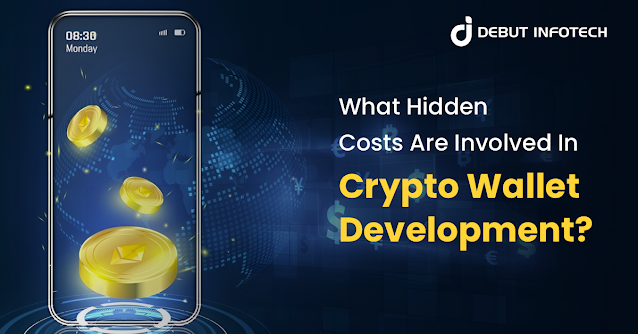The real estate industry is going through a technological revolution as Non-Fungible tokens (NFTs) become an innovative way to invest in real estate. This microblog explores the potential and risks associated with NFT real estate marketplace development investment in real estate.
NFTs are digital assets that are unique and that are verified by blockchain technology, which identifies ownership of an object, which in this instance is real property. Contrary to traditional real estate investment NFTs are a new method of allowing digitization of ownership as well as the transfer of real estate.
Opportunities in NFT Real Estate Investment
Fractional Ownership
The main benefit for real estate NFT marketplace development lies in fractional ownership, which splits the property investment into manageable pieces. This model makes investing in property more democratic which opens up the possibility of small investors and makes it more affordable and accessible. Fractional ownership is therefore an important shift away from the traditional investing in real estate.
Global Access
NFTs remove traditional geographical limitations which allows for international access to the industry. This is a significant increase in the pool of investors since people from anywhere in the globe are able to invest in NFTs for real estate. Through the elimination of international restrictions, NFTs provide an open and diverse investment climate.
Liquidity and Market Efficiency
This NFT real estate market is distinguished by its increased liquidity in comparison to its physical counterparts. Digital properties are able to be traded faster and the blockchain's intrinsic nature means that transactions are efficient and transparent. The speed and transparency are the primary reason people choose to take advantage of NFT real property.
Innovative Investment Opportunities
It is believed that the NFT real estate sector provides new investment options. Investors are able to investigate and purchase virtual properties that are located within virtual worlds, which is becoming more popular in the world of metaverses and virtual reality. This does not just diversify portfolios of investment but also aligns with the latest trends in digital technology and offers unique opportunities that go beyond traditional property investments.
Navigating Risks in NFT Real Estate Investment
1. Market Volatility: A Rollercoaster Ride
The NFT real property market is like a fresh market entrant thrilling, yet uncertain. Prices can go up or down abruptly, resulting in a high-risk investment game. If you're looking for a silky smooth sail, it could seem more like riding waves in an erupting storm.
2. Regulatory Uncertainty: Navigating Uncharted Waters
The rules to govern NFTs along with digital property owners are being developed. It's like driving with no obvious road signs and you're never sure that you're heading in the right direction. Investors are caught in a grey area, having to deal with unclear property rights and tax implications as well as a myriad of international and local laws.
3. Technological Risks: Dependence on Digital Foundations
Investment in digital properties is similar to building a home on a virtual land and it's only as solid as the technology that it's built on. Blockchain is the basis and any flaws in the digital bedrock - such as security flaws or technology problems - could cause substantial losses.
4. Market Adoption: Winning Over the Skeptics
The idea for NFT real estate is at its nascent stage and has to face the traditionalist test. A lot of traditional investors may give an uneasy look as one would look at a flying car: fascinating but not tested. This can influence the speed at which these digital assets become popular and ultimately their market value.
5. Risk Mitigation: Treading Carefully
For those who are attracted by the possibilities for NFT property, it's a way to venture into a maze of possibilities - thrilling but only if you're prepared. Making sure you do your research, obtaining tips from blockchain developers and real estate experts, and spreading your investment portfolio can assist you in exploring this new area more securely.
Conclusion
The investment in NFT real estate marketplace development can provide a unique mix of opportunities and risks. It's an exciting option for investors who want to investigate the possibilities of new digital assets. But, as with any investment, it requires an attentive consideration and knowing the market's dynamic.
For a deeper dive into the complexities that is NFT real estate, and to comprehend the complexities we encourage you to take a look at our comprehensive document: "Real Estate NFT Market Development: A Detailed Step-by-Step Guide." This blog is an in-depth look at the NFT real property market and provides important information for both new as well as experienced investors. Visit this page to read the complete guide and broaden your knowledge about NFT Real Estate Investment.










